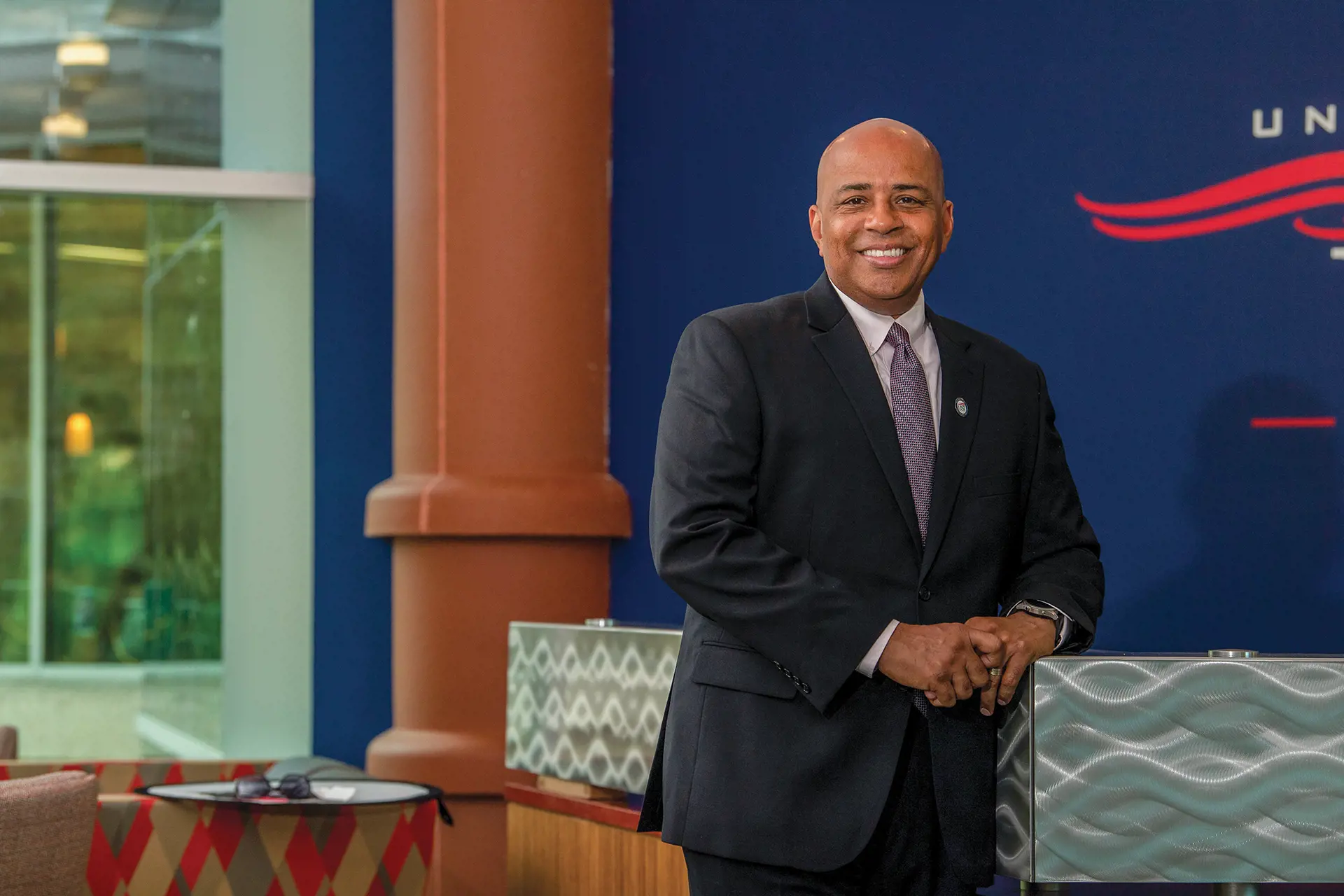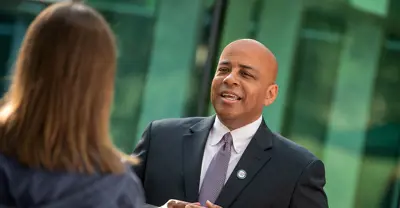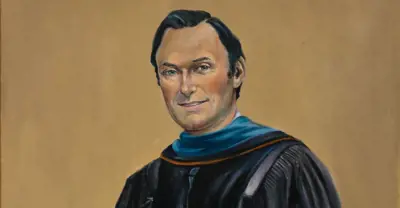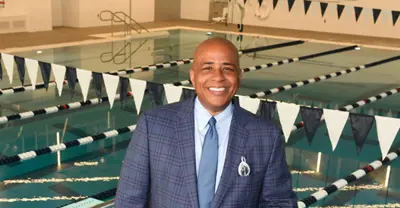President's Perspective
by President Ronald S. Rochon
Education's Return on Investment

As a child, I did not appreciate reading and saw it as a chore, but my mother, a devoted reader, stressed its importance. She knew the role reading played in life and its advancements. Neither of my parents went to college, but they were wedded to me and my siblings earning degrees. They had witnessed the results of what was possible with an education, and they wanted us to have a different life. Higher education provided that. With it we would be offered different life opportunities that would result in different life realities. Not just in terms of income and career choices, but independence, autonomy, engagement and more.
College not only changed me, but it changed my future family. My wife and I were able to expose our children to places and cultures where they met people, experienced differences and saw things that shaped and enhanced their understanding of the world and themselves because of our college educations.
Unfortunately, the value of higher education is under the microscope as national discussions occur about student debt and its return on investment. The value of higher education itself, however, gets lost in this abyss when a dollar amount is attached to it as opposed to it being a life-altering, transformational opportunity. Overwhelmingly, the people I have met from across this globe, who have been afforded the opportunity of some form of advanced education, have benefited from attending these institutions and said their lives were changed forever.
Higher education, however, requires a leap of faith in yourself. You will not acquire the knowledge needed for your future success in a month or two. You will need to apply yourself; you will need to be engaged; you will need to be disciplined to reap the benefits education offers. You will need to invest time and money into your future through two, four or more years of late-night studies, a few failed assignments, substantial intellectual gains and, yes, possibly debt.
As a society, we are willing to invest $30,000 in a new car that depreciates 20% in value the first year of ownership, but we balk at investing that same $30,000 in our futures through education. Unlike a car, however, education increases in value. The Indiana Commission for Higher Education says those with college degrees will earn an additional $1 million during their working lives than their peers who hold only high school diplomas or GEDs.
Education, however, is not shiny or tangible like a new car. You cannot drive education around, but it will take you farther in life, providing unlimited mileage. Understanding the value of education requires a belief in the investment. Such faith in higher education, however, and trust of public institutions in general, is on the decline, according to a Gallup poll released July 11, 2023. In 2015, 57% of Americans said they had “a great deal” or “quite a lot” of confidence in higher education. In 2018, that slumped to 48%. Today, it is an anemic 36%. As someone who has dedicated his life to higher education and the advancement of all young people, I find this disturbing and fear for the future of our society.
I echo the alarm Indiana Commissioner for Higher Education Chris Lowery sounded concerning Indiana’s college-going rate among high schoolers which plummeted to 53% between 2015 and 2020. He noted in an article published in The Statehouse File August 2022 that “education beyond high school is at the heart of economic and social mobility, and civil society.”
In 1965, the University of Southern Indiana was established to address this very concern and conceived in the belief that access to education was a right that needed to be available to everyone. It offered a pathway to an excellent education through a public institution, at a time when there was a strategic system in place that prohibited a public university from existing in the same city as a private institution.
When my mother realized my reading comprehension was not where she thought it should be, she did not give up on me, she enrolled me in a reading course. We did not have the money for this additional spending, but she persisted, understanding it was an investment in my future that would one day pay off. She was right about the transformative power of education, but what she might not have foreseen was the generational, intellectual wealth that would accrue because of it, paying dividends to her grandchildren, great grandchildren and more. It is this generational ripple effect higher education offers that elevates and benefits whole societies, and one worth making today and tomorrow.






